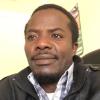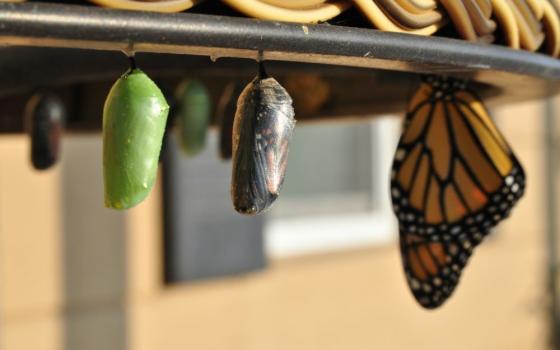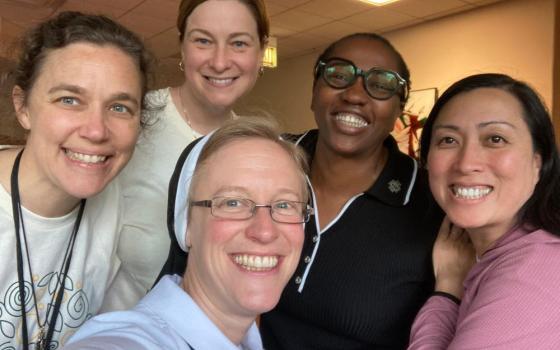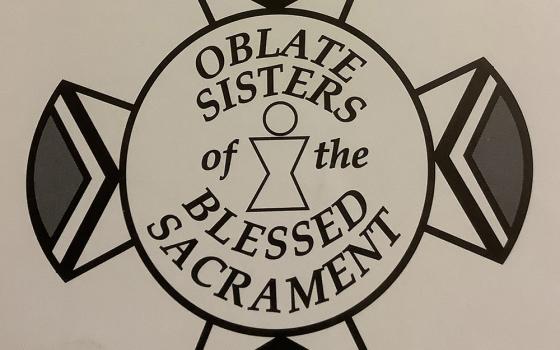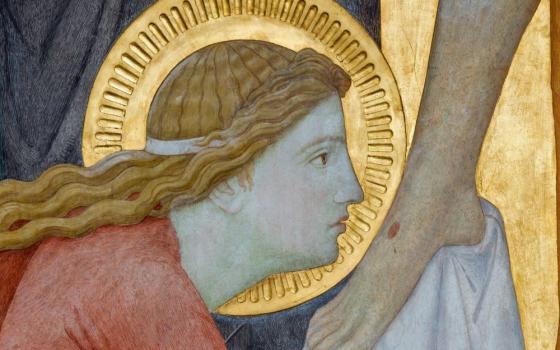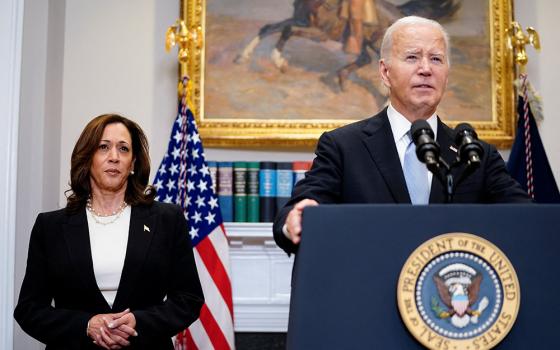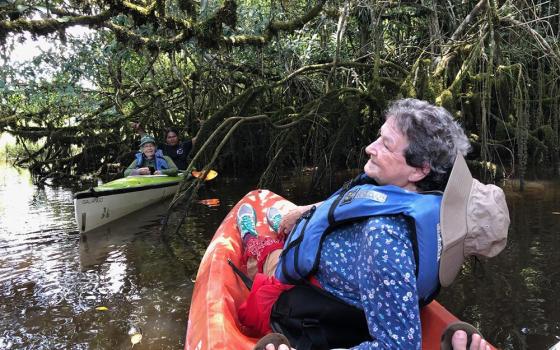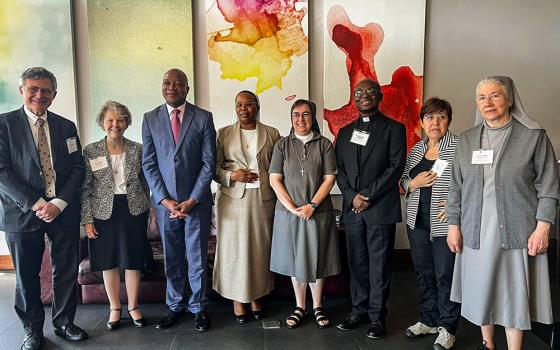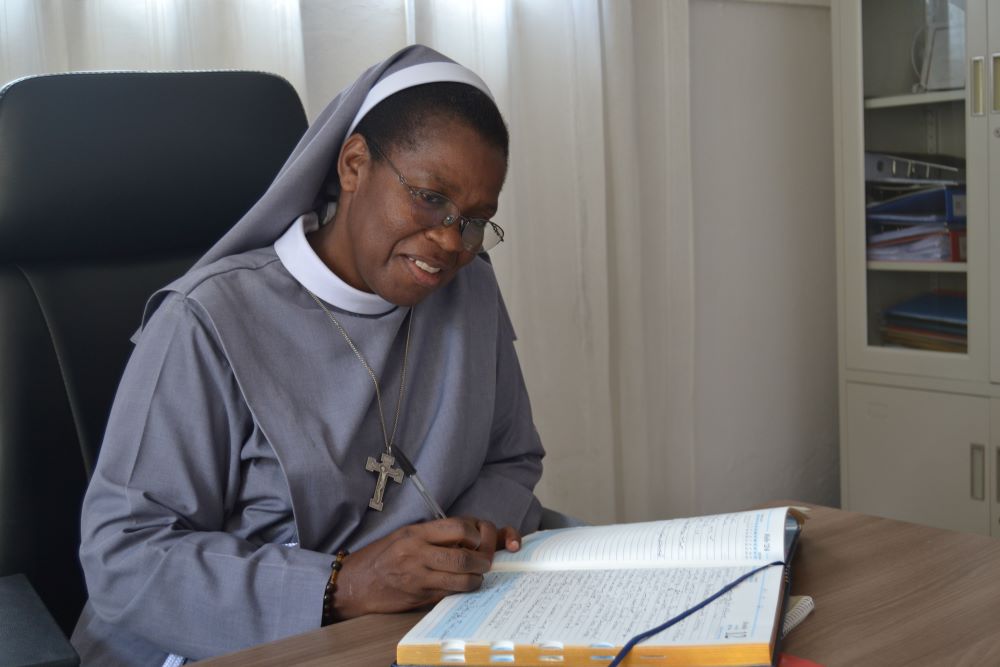
Sr. Marjory Mwansa sits in her office at the St. John Paul II Orthopaedic Mission Hospital in Lukasa, where she is administrator and physiologist. (GSR photo/Derek Silimina)
As patients flock to seek orthopedic therapy in a country already grappling with obsolete medical facilities, health care at the St. John Paul II Mission Orthopaedic Hospital is vibrant.
Lumbiwe Mutale, 32, arrived at the hospital with her 10-year-old son. The mother of two brought her son for a checkup at the orthopedic hospital based in Lusaka, Zambia's capital, where he recently underwent knee surgery to treat Osgood-Schlatter disease, an overuse condition or injury of the knee that typically affects kids during their pre-adolescent growth.
"I'm really impressed that my son is able to walk now with ease after his knee proved problematic. This state-of-the-art health facility is indeed a treasure to our country because my son has been treated at no cost, and thank God the sisters are doing a great job." Mutale said.
Long before orthopedic surgery was a priority in the southern African country, schools or institutions managed by sisters for children with disabilities would evacuate patients to Italy for specialized orthopedic treatment, but the humanitarian initiative became unsustainable.
"We started sending our children for surgery to Italy through our sisters' benefactors from Italy, but that proved to be a problem," Sr. Marjory Mwansa told Global Sisters Report. Children would stay for six months or more and it was a challenge to return them to their families or provide specialized treatment for them in Zambia, she said.
Mwansa, a member of the Franciscan Missionary Sisters of Assisi, said the sisters in the 1990s initiated a plan to establish a hospital that could treat children with a variety of life-limiting yet treatable disabilities. Most of these vulnerable children were from the Kabulonga Cheshire Home in Lusaka, the Dagama School for Physically Disabled Children, Ibenga Girls Secondary School and the Ndola Cheshire Home, all run by the religious sisters.
She said that based on that history, the sisters spoke with their benefactors in Italy, such as the Rotary Club of Italy, and funds were raised to establish an orthopedic hospital in Zambia to treat children in need of orthopedic services.
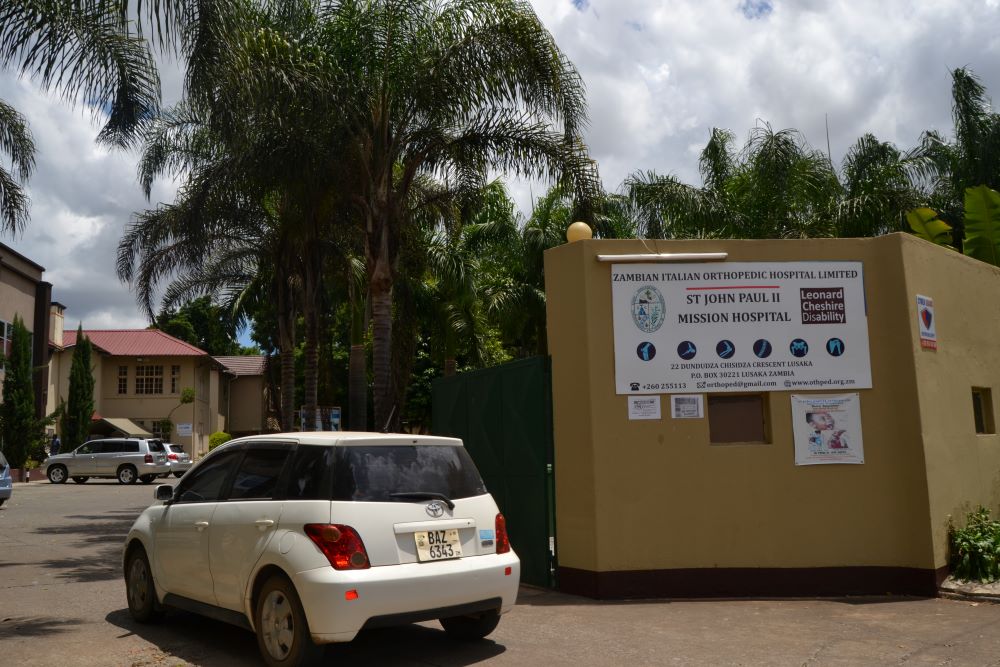
St. John Paul II Orthopaedic Mission Hospital in Lusaka, Zambia's capital, opened in 1995. From January 2000 to January 2024, the hospital has treated more than 22,000 patients, including children who received free treatment. (GSR photo/Derek Silimina)
Mwansa, a physiotherapist by profession, noted that the state-of-the-art medical facility is a beacon of hope among children with disabilities, especially those identified through the sisters' outreach programs who receive free orthopedic services.
"We've been working with Italian doctors and Zambian doctors. The Italian doctors come once in a while, but mostly, we have the Zambian doctors operating on the children," she added.
Mwansa, also administrator at the St. John Paul II Orthopaedic Mission Hospital, stressed that sustainability became a problem, so the missionary sisters at the hospital opened the facility to the public since Zambia then did not have a specialized orthopedic hospital. Private patients pay for the service to supplement the surgeries for children with disabilities who get free services.
The hospital has been of great significance to Zambia and other neighboring countries, including Zimbabwe, Namibia, Malawi and Tanzania, among others, whose nationals in need of specialized orthopedic services also receive treatment. The hospital also helps patients from outside Africa.
GSR: Tell us about your work and ministry.
Mwansa: When I wake up, I have morning prayers and Mass. On Mondays, there is no breakfast, which means it's straight from Mass into the morning briefing because we have our planning. First, we look at what we did the previous week, then plan for the week. I work with six other sisters and 75 staff members at this medical facility.
When this hospital started in 1995, I came here as a novice. I stayed because I was already trained as a physiotherapist. And then, when I made my vows, I came back to start the Physio Department, but we didn't have enough personnel, so I even used to work during night shifts.
Some of our staff participate in an outreach program with one sister around Zambia to identify children with disabilities so that surgery can be done early because it's difficult to do surgery on some of the children if brought in late.
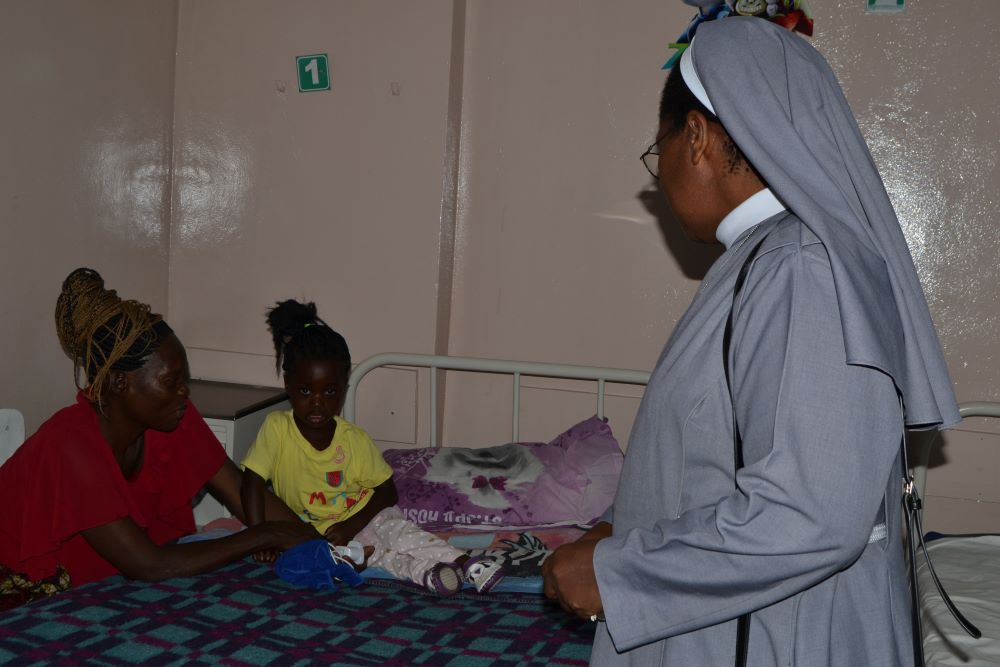
What other medical services do you offer apart from orthopedic therapy?
We have a lab, an X-ray department, a pharmacy, a theater, physiotherapy, a dental clinic and a restaurant to prepare meals for patients admitted to the wards; those who come just for consultation are seen by the outpatient department.
How does your charism align with vulnerable children?
For me, I feel as a congregation, we are indebted to God because only God brought us here. And so our being part of this institution is not just our own making. God has called us to come and witness. So, it's not so much the surgeries taking place but our witness to the people and the healing ministry of Jesus Christ.
How has your ministry evolved with time with your medical practice?
Before I joined the sisters, I was in a group known as the Vocation Club at secondary school. And in that club, we looked at careers taken by sisters. Essentially, I wanted to be an accountant or a doctor. As we were sharing during our meetings with the sister who used to come and mentor us, she talked about physiotherapy. I was already exposed to children with disabilities, so I decided to do physiotherapy before I even joined the sisters. They told me that I needed to do nursing, although I don't like wounds. So, I applied to study physiotherapy, and I was accepted.
My passion is to serve, and I respond to what the Lord tells me to do each day when I wake up. My motivation is what I do through prayer every morning to go and serve God's people. It requires a lot of listening to what God is asking of me to go and serve the people since I love children with disabilities.
Advertisement
How many patients have benefited from your medical services?
We attend to many children. From 10 since inception, we have attended to thousands this year alone. From January 2000 to 2024, the total number of patients we've seen was over 22,000, and of that, the children who accessed free services are over 5,000 and that includes the cost of medication.
What challenges do you face in the daily operations of the hospital?
We have some children, apart from any other condition requiring surgery, who have epilepsy, and the drugs are very expensive. Whenever surgeons attend to a disabled child with epilepsy, they have no option but to procure drugs for epilepsy, which are costly, and treat the patient before orthopedic surgery is done.
We no longer receive support from our Italian counterparts for material supplies, medical supplies, equipment and all that. There is no donor funding that comes in. So, this hospital is purely self-sustained, and it's quite challenging because we can't attend to too many patients. As I have said, 5,000 wouldn't be our aim. We may want as much as possible, like, if we see 22,000, we may want to have 10,000 because these numbers are dependent on the private patients and what they are paying to help maintain the hospital. We have to align ourselves to the budget and money is also used to pay our employees' monthly salaries, and we need to pay them a gratuity. We also need to pay utility bills and subscribe to other statutory obligations.
